Proof That It’s Pre-Code-ish
- How sexually carefree and attractive is the Chevalier character this go around? At a mod Parisian brothel, one patron holds the girl at his table by the wrist and sighs, “You stay here! … I once had a harem…”
- Just to kick it up a notch, one of the prostitutes has a garter garnered from Chevalier’s character emblazoned with “Many Happy Returns”.
- In one of the most nakedly suggestive things you may ever hear, Danilo chides Sonia about her interest in him: “Your right eye says yes, and your left eye says no. Fifi, you’re cockeyed!”
- There’s can-can dancing and MacDonald dressing:
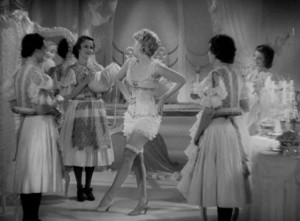
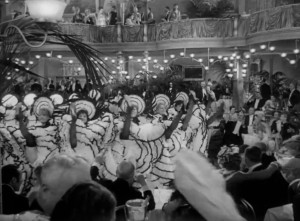
- “Stop teasing me.”
“Stop pinching me.“
- “Last night [Fifi] committed suicide. She jumped into a cold bath, and you’d be surprised, Captain, what cold water can do.”
- Back on the subject of naughty gifts, when awaiting a court date, Danilo has his handcuffs inscribed “From Dolores to Danilo”. Oh dear.
- At the film’s finale, when Danilo is on trial for essentially failing to seduce Sonia, one of the items he used during his attempts is brought out and seems rather, ahem, suggestive:
The Merry Widow: A Winsome Waltz
“Have you ever had diplomatic relations with a woman?”
The Merry Widow is an Ernst Lubitsch movie starring Jeanette MacDonald and Maurice Chevalier. You know this romantic pair– they’ve been together three times before. If you’ve watched The Love Parade or Love Me Tonight, you probably get the gist by now– Maurice swoops in to teach MacDonald the pleasantries of sex, MacDonald teaches him the wonders of monogamy, they sing and the camera looks away, as if it were blushing.
This one attempts to do much of the same, but something is missing. Ernst Lubitsch was lured away from Paramount by Metro Goldwyn Mayer to pair him again with the two singers he turned into stars. He is, of course, one of the greats. But this film may be one of the most interesting studies for film students out there– can you see the differences between Lubitsch’s Paramount musicals and this outing? The textures are different. Lubitsch away from Paramount isn’t the same Lubitsch.
That’s not to say it’s bad, by any means– don’t scratch your head at that big green ‘Like’ up at the top. It’s just different. Lubitsch is known for his wit and delicacy, here it’s matched by some of the most lavish sets and musical sequences you may gaze upon. While he tries to liven them up, between the droning, lugubrious songs and mechanical choreography, it sometimes feel like someone lobbed a brick into a souffle.
Again, not that it’s bad. Just different. And, for some people, let’s be honest, this may be exactly their cup of tea.
I reviewed the plot a bit back at the very top, though I suppose a few more details are needed. I don’t just mean listing the supporting cast — Edward Everrett Horton! Una Merkel! George Barbier! — and then letting your imagination do the walking. MacDonald this go around is Sonia, a woman who, we find out through an amusing bit of a diary review, was married for four days and spent the next year in mourning.
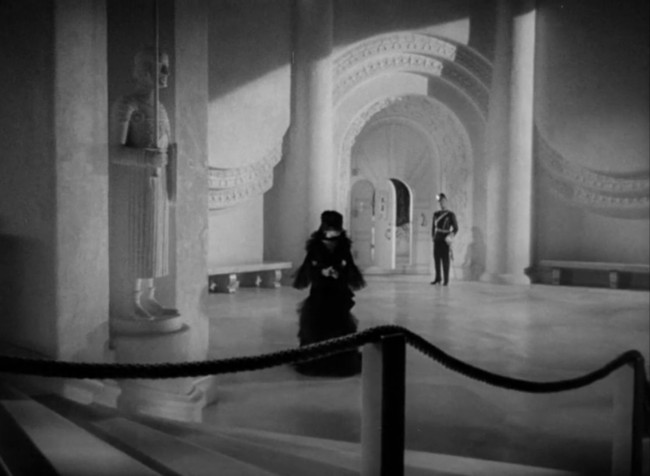
Her mourning period is broken by Danilo (Chevalier), who, having run out of every other woman in the mythical country of Marshovia (and Paris, too, as we’ll soon see), has become intrigued by the widow. However, as she wears a veil, he can only see the bottom half of her face. Can a man fall for that? Or a woman who sings quite so much?
This opening is full of wonderful little Lubitschian touches. Take Sonia’s boudoir, decked out all in white but accented by her outfits, all identically black. Though she spurns Danilo, he snaps her out of her sadness by a bit of unsuccessful wooing that still manages to reawaken her. Through graceful montage and a few fades, we watch as all of her clothes transform from dour to sleek and modern. Even her old black pup suddenly becomes white and cheery.
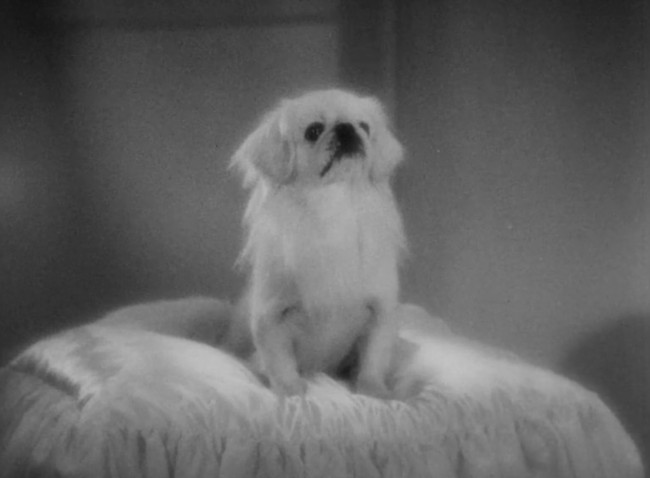
Yeah, I don’t know how that works. A brief aside– Sonia is the richest woman in Marshovia. Her newfound awakening has left the country terrified, for, if she heads to Paris and marries, more than half the country’s assets go with her. The country’s King (Barbier) realizes that there’s only one man for the job to seduce and marry Sonia– the man who he discovers in his bedroom with the queen: Danilo. The King is delighted– and horrified– but again, delighted. He quizzes Danilo to make sure he’s up to snuff:
“So you know Paris?”
“… Do you want some addresses, your majesty?”
Good enough. Danilo arrives under the express understanding that if he fails in his mission to bag Sonia– who, mind you, he doesn’t know is the woman he attempted to seduce at the beginning of the film– his death will be mercifully quick. In one rather brilliant sequence he heads to Maxim’s to enjoy his first night in Paris, and, through a series of offenses and barely closed doors, he meets the ambassador he’ll answer to, the, uh ambassador (Horton).
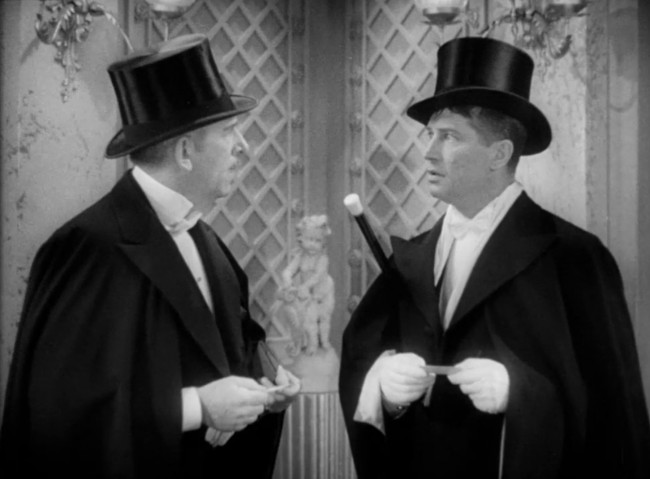
Here, Sonia has hunted Danilo down, but since he never saw her face, he mistakenly believes she is among the staff of the wink-wink-nod-nod-totally-not-a-brothel Maxim’s. She decides to mess with the cocksure (cough) Danilo by refusing his advances and flirting with other men. When he tricks her into a room and the two get close enough to kiss, she pushes back. He turns to pout that she isn’t as easy to seduce as he’s expected, she throws open the door and a cadre of prostitutes run in. (As they are apt to do when doors open.) She waves at them melodramatically:
“Here they are, all your little ‘tonight’s. And not a tomorrow among them.”
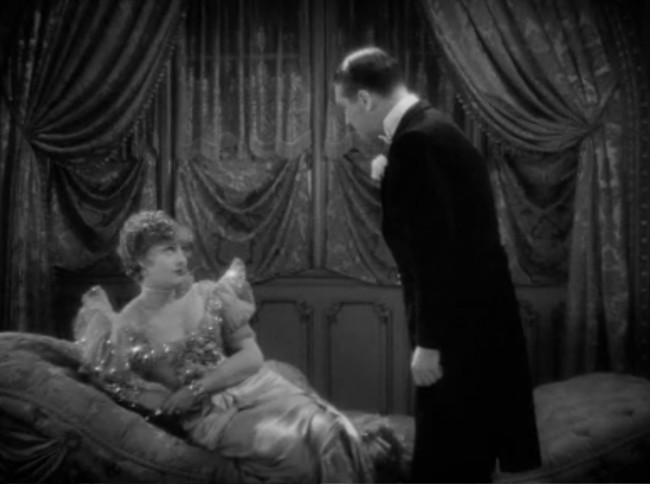
So the pieces of the battle are set by the ambassador: Sonia is invited to an extravagant ball. Danilo, who has one of the most maddening hangovers of all time, must now seduce the woman who spurned him the night before. And he must do it so that she knows that he’s not doing it under orders, but out of real, true love.
It’s that “real, true” thing I have problems with. As much as I love ye olde Hollywood magic, the romance in The Merry Widow seems perfunctory at best, smothered by a combination of Lubitsch’s wit and the elaborate musical numbers and set design. It lacks a certain intimacy, though it tries. Chevalier and MacDonald, who at this point in their careers were quite done with one another, only seem at ease when their characters are bickering.
Again, not that that takes away from the movie significantly. Lubitsch’s wit makes the film, and this film is one of the last ones where he’d be allowed to wink at the audience quite so broadly. Another favorite bit: Horton’s ambassador turns play-by-play commentator on what he thinks is a seduction between Sonia and Danilo but is really a fight. Switching from the romantic couple’s argument at such a crucial moment would seem dramatic suicide, but here Lubitsch uses it once again not only wring a few laughs out of the buffoonish ambassador but to firmly remind us of the stakes. There’s always a sense of playful purpose, a need to undercut in a way that’s both funny and smart. And that’s hard to resist when it comes from such a talented cast.
The Merry Widow is a good gateway film. It’s the most polished of the Lubitsch musicals and the most gorgeous, and should give you an idea if there’s any avenues you’d like to further explore. If you like MacDonald’s singing, you can follow the rest of her career at MGM. If you like their chemistry, you can go back to the superlative Love Me Tonight and One Hour With You and dawdle there. If you just like how damned funny it is, welcome to the world of Lubitsch. Strap in.
Gallery
Hover over for controls.
Trivia & Links
- Released in November of 1934, which means that it came out after the enforcement of the Production Code. In case you watched and think that’s stunning, there’s a pair of reports from TCMDB that explains why this restored version seems naughtier than you’d expect.
Censors from the film industry’s Production Code Administration objected to a scene at Maxim’s in which Chevalier carries MacDonald to a couch, drops her there and then sits beside her. They only passed the scene when the stars managed to contort their bodies so she could keep both feet on the floor. That taken care of, PCA head Joseph Breen passed the film.
When the film premiered in New York City, Breen’s boss, Will Hays, and Catholic publisher Martin Quigley, one of the Production Code’s authors, were horrified at what they considered the introduction of filth into a harmless operetta. Breen had to come to New York, where he met with MGM executives and members of the Catholic church’s Legion of Decency until 2 a.m. working out cuts to tone down Count Danilo’s Casanova image and the suggestion that Maxim’s was a glorified brothel. Since the film had already been sent to distributors, each distribution office had to cut the prints itself before they could be sent to theatres. Fortunately, the studio kept all the cut material and the film was restored as censorship restrictions relaxed.
- There were two previous versions of The Merry Widow, including a 1925 silent version helmed by Erich Von Stroheim that was one of MGM’s biggest hits. There have been a number of remakes, the most notable being the 1952 version with Lana Turner which also had Una Merkel in the cast. (That version is pretty awful, though, in case you were thinking of tracking it down.)
- There is a French version of the film called La Veuve Joyeuse that also starred MacDonald and Chevalier and with a French cast.
- Some more from TCMDB: this film was one of the most expensive of its time (not a shock considering how fantastic it looks) clocking in at $1.6 million. Irving Thalberg, having seen Warners’ success with reviving the musicals with 42nd Street and its ilk, felt it was time to revisit one of MGM’s biggest hits. He’d gotten MacDonald under contract earlier in the year by promising her she’d be a massive star, and got Chevalier to come under contract to MGM, too– though to Chevalier, he’d promised more serious parts and to not have to work with MacDonald, whom he disliked greatly. To convince Chevalier to change his mind, Thalberg got Lubitsch from Paramount for the movie and gave it a massive budget.
- The movie didn’t make back its budget. Chevalier, fed up with Thalberg’s continued offerings of more musical comedies, returned to Europe to work. MacDonald stayed with MGM where her star rose through an unending series of agonizing operettas co-starring Nelson Eddy. Ernst Lubitsch would only work for MGM two more times: in 1939 for Ninotchka and in 1940 for Shop Around the Corner.
- First Impressions has some great observations I agree with, so allow me to paraphrase the hell out of it:
The Merry Widow is a shallow masterpiece. […] It’s only of Lubitsch that one dares ask for more. […] The Merry Widow might not be the best Lubitsch – it doesn’t quite touch our hearts – but it is the quintessential Lubitsch in that it delights the eye, the ear and the mind.
- Goddamn, Andre Sennwald of the New York Times, what a weird paragraph:
It is a good show in the excellent Lubitsch manner, heady as the foam on champagne, fragile as mist and as delicately gay as a good-natured censor will permit. Victor Leon and Leo Stein have arranged a book to suit the Lubitsch style and the songs which fall to Miss MacDonald and Mr. Chevalier have grace and wit. All of the sets are consummately lovely and a few of them are entrancing enough to persuade a Moslem that he has departed this life for the paradise promised by the Prophet.
- NYU’s film notes are a lot more forgiving than me (as are a lot of reviews on the internet, for the record), saying, essentially, “it now seems a good deal funnier than it ever did before!”
Awards, Accolades & Availability
Comment below or join our email subscription list on the sidebar! |
||
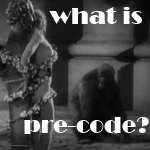 |
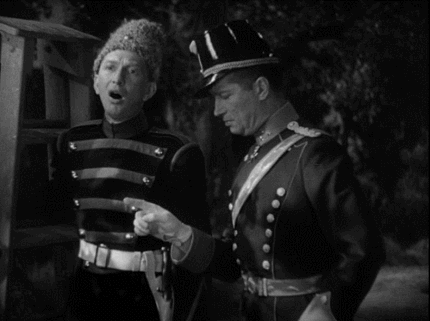 |
 |
 |
 |
|

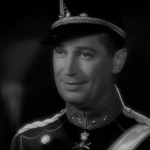
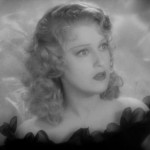
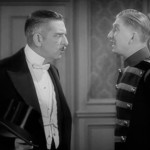
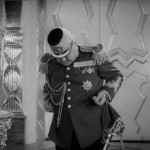
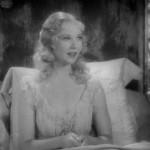
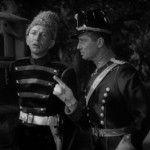
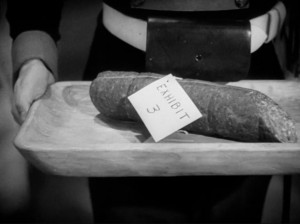
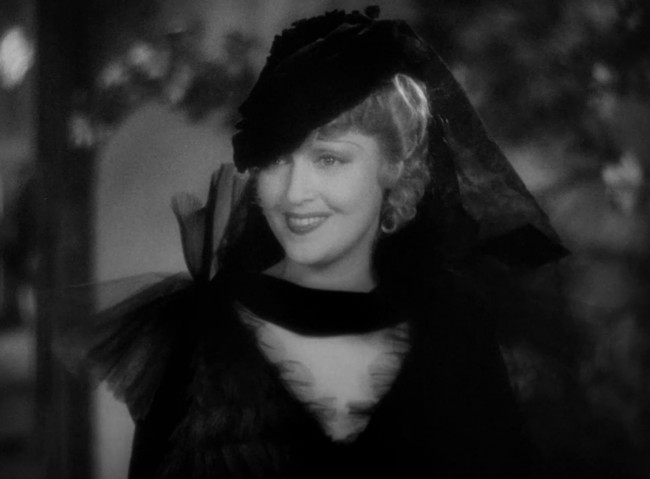
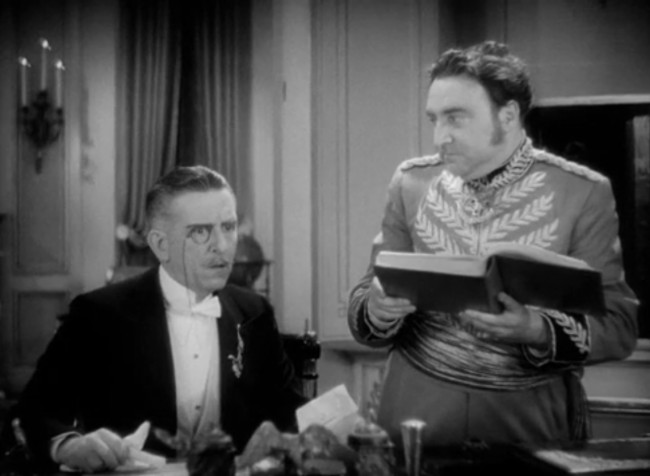
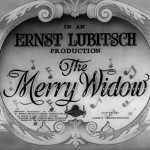

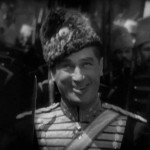
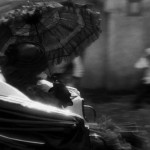
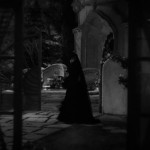
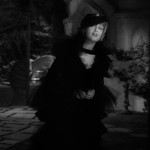
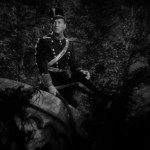
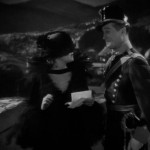
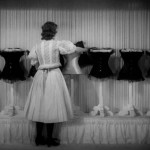

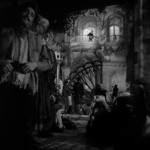
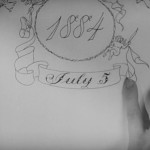
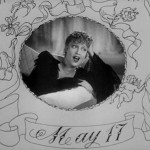
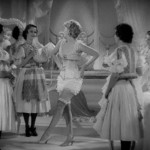
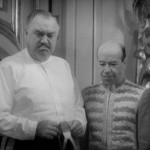
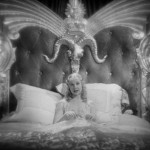
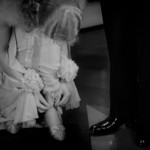
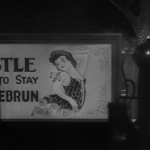
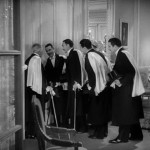
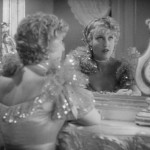
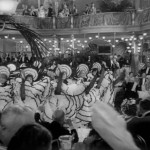
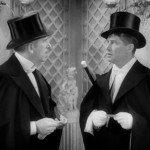

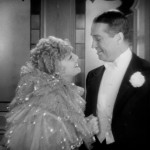
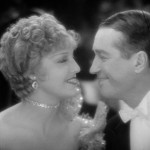
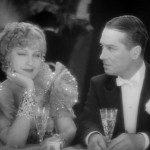
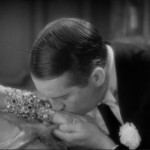
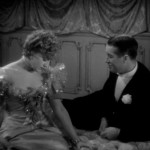
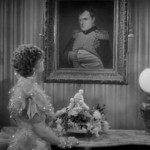
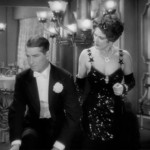
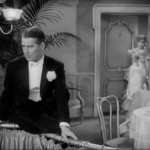
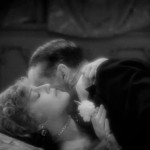
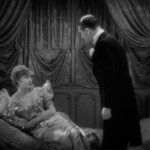
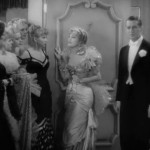
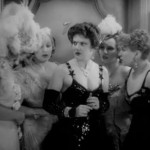

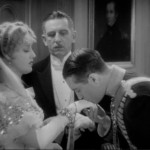
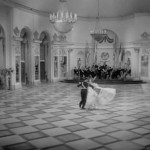
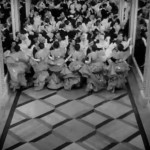
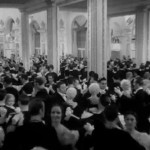
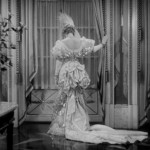
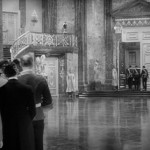

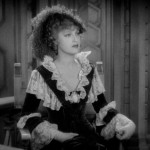
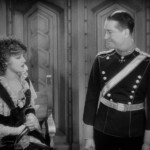
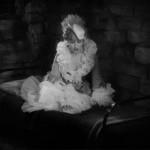
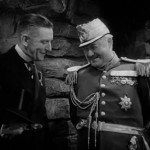
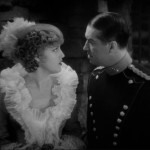
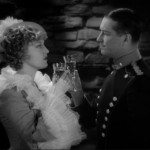
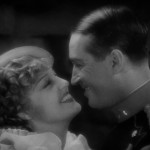
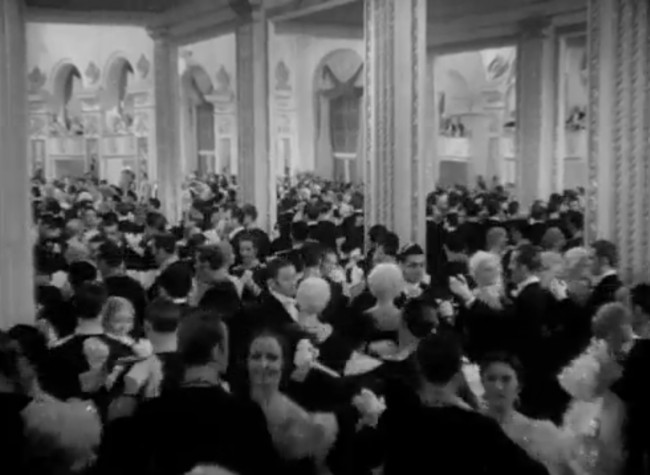
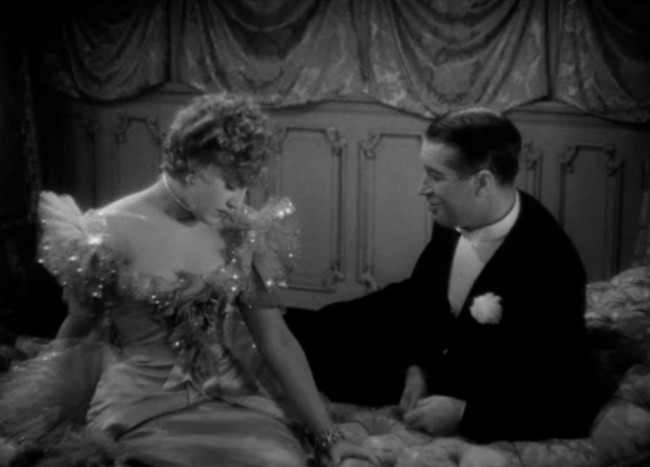
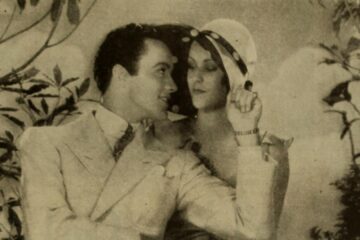


6 Comments
Mark A. Vieira · April 18, 2016 at 5:21 am
May i clarify a couple of issues you mention?
The French-language version, titled La Veuve Joyeuse, is not lost. There is excellent pre-print material in the Turner vaults. A letter-writing campaign to Michael Crawford and George Feltenstein at WB Home Entertainment might result is a Warner Archive release, as happened with the foreign-language versions of The Big House.
You write: “Since the film had already been sent to distributors, each distribution office had to cut the prints itself before they could be sent to theatres. Fortunately, the studio kept all the cut material and the film was restored as censorship restrictions relaxed.”
Since writing Sin in Soft Focus, I learned that this was the sequence of events: Irving Thalberg had the Merry Widow negative cut to comply with Will Hays and Joseph Breen. However, before he cut the neg, he had a fine-grain positive made. Then prints were made from the cut negative and shipped to the second-tier theaters and regional theaters. Exhibitors did not cut prints. There was no need to do that.
When MGM made a 16mm dupe neg for its TV prints in 1957, the lab used the UNcensored fine grain as its source. But the MGM-UA Home Video release in the 1980s came from the censored fine grain. The Warner Archive DVD was authored from the UNcensored fine grain. And it is gorgeous.
Danny · April 19, 2016 at 8:49 pm
Thank you so much for all this info, Mark, it’s much appreciated! And you’re absolutely right about Mordaunt Hall vs Sennwald (especially in terms of quality), so I can’t believe I slipped up there. I made the appropriate changes above. Thanks!
Mark A. Vieira · April 20, 2016 at 4:01 am
And thank you, Danny, for introducing these works of art to a new audience. I hope to see you during the week of the TCMCFF.
Mark A. Vieira · April 18, 2016 at 5:28 am
The New York Times review of this film was not written by Mordaunt Hall. It was written by Andre Sennwald, who was a perceptive, gifted critic. Mordaunt Hall could not write such an articulate review. He was a hack who never did more than synopsize the film he was reviewing. And he always included spoilers.
beelzabub · April 24, 2016 at 9:26 am
“Ernst Lubitsch would only work for MGM one more time: in 1939, for Ninotchka. ”
Lest we forget “The Shop on Main Street” (1940) also Lubitsch also M-G-M.
Danny · May 21, 2016 at 2:38 pm
I think you mean Shop Around the Corner, but, yes, you’re absolutely right! Fixed!
Comments are closed.